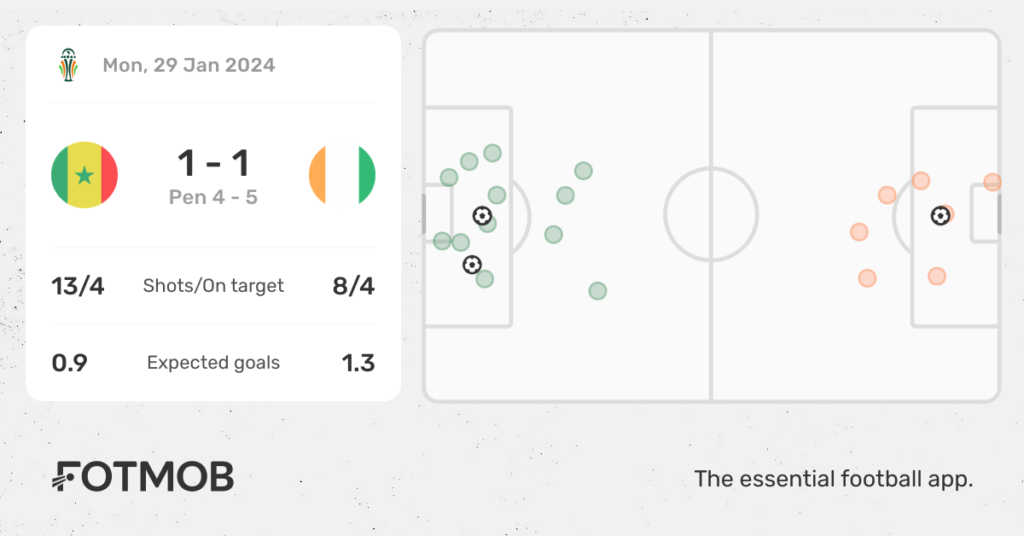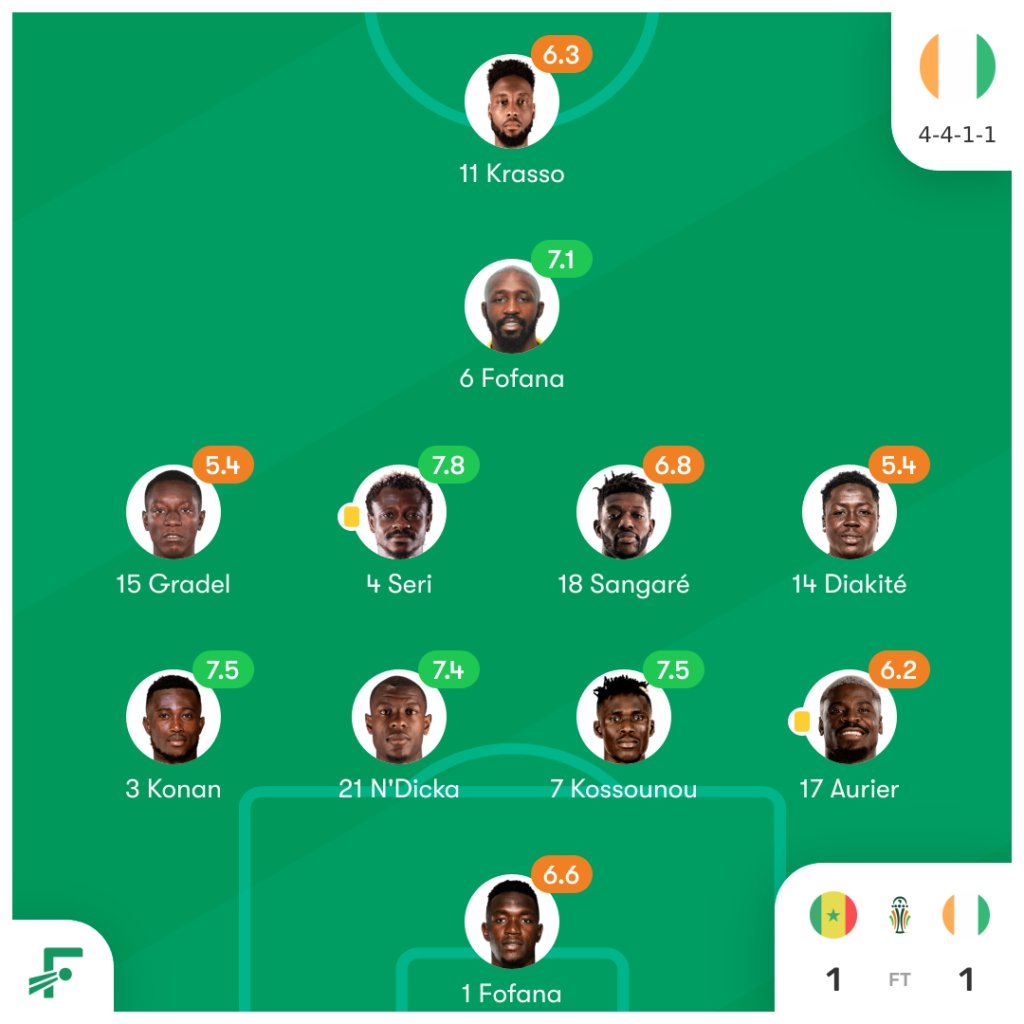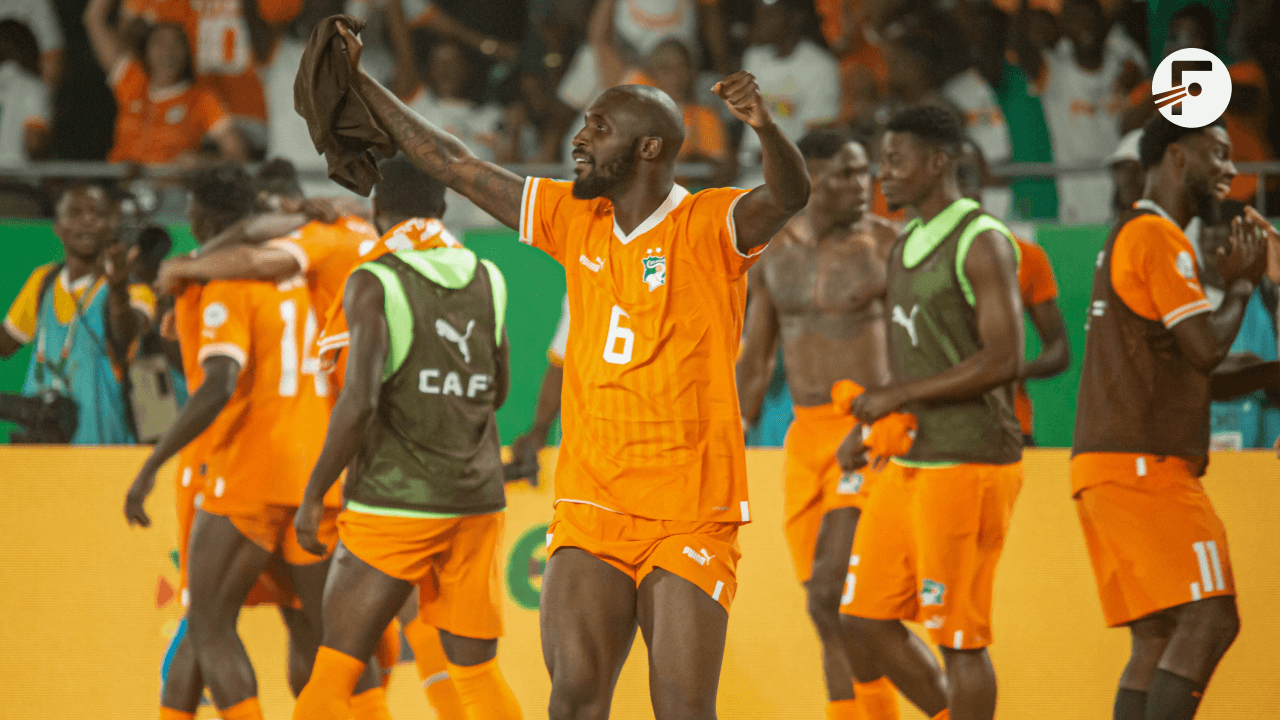While Morocco could certainly claim to have made the right choice as Walid Regragui took them to the semis in record-breaking fashion, that was very much an outlier – until now, perhaps.
And if Lopetegui’s short-notice exit was extreme, we need another word entirely for Ivory Coast’s latest head coaching axeing, binning off Jean-Louis Gasset midway through hosting this year’s Africa Cup of Nations. Brave, perhaps. Valid. Even sensible, despite the shocking nature of it being without precedent.
Because as was evident in the contrast between group stage stumbles and surprise penalty shootout win in the last 16, the Elephants have given themselves not just a shot at glory on home soil, but sudden belief and cohesion about their game.
With Emerse Faé the caretaker in the dugout, they began understandably timidly against Senegal and were behind within five minutes. But slowly, but surely, they played their way back into the game, grew in stature and – with the critical use of well-timed, impactful substitutes – Ivory Coast were deserved victors in the end.

Consider: while Senegal certainly sat back after scoring early, allowing Ivory Coast possession, the half-time stat pack read just two shots apiece, yielding an xG of 0.14 for each team. Habib Diallo had scored a rocket, but nobody else really fashioned anything of note. Second half, while Senegal offered more attempts, they were low-quality and only one from Sadio Mané registered higher than 0.1 xG individually. Ivory Coast on the other hand scored a penalty, created two big chances and totalled an xG for the entire game of 1.3 to Senegal’s 0.9.
Play became far more fluid, buildup work had more structure, more consistency to it and – even when there was no eventual shot – clear intent and possibility to repeat patterns. Six players managed at least eight final-third entries during the game; five of them were for the host nation. Most of these – and almost all the most important touches in the Senegal penalty box – came after Faé made a host of attacking subs to bring on Franck Kessié, Seb Haller, Christian Kouamé, Simon Adingra and Nicolas Pépé.
The latter won the penalty; the first on that list scored it – as well as the eventual shootout kick to send his team through. Haller played the original pass into the box before Pépé was fouled. Kessié had three shots, the most in the game, and he only played 20 minutes – it was a fierce and determined entrance from the midfielder, while Pépé’s speed stretched play and brought direct runs into the area at just the right time.
Add in the promising and powerful midfield pairing of Seko Fofana and Ibrahim Sangaré – eight recoveries, two shots, two dribbles, ten duels won between them – and there are plenty of options for Faé to work with ahead of the last eight. Indeed, his biggest decisions will come over which impacted enough to start, and which should be held back as influential options off the bench.

And so to the quarter-finals, where suddenly the path looks incredibly open for Ivory Coast if their attacking talent finds full form and fitness quickly.
With holders Senegal out, much-fancied Morocco gone, big-hitters Cameroon defeated and Egypt – with the continent’s best player, Mohamed Salah – also eliminated, Ivory Coast now find themselves the second-highest-ranked nation remaining at the Afcon. Only Nigeria are placed higher than them in men’s football, and they are on the opposite side of the draw.
While that’s not to say the route is an easy one for a team still rediscovering itself, there are enough results in the catalogue to suggest the Elephants can see off Mali, then DR Congo or Guinea and reach the final in Ouattara on 11 February.
The last time they faced Mali – in 2019 – was long ago enough to be considered an irrelevance. But there are far more recent wins over Gambia, Uganda and Guinea-Bissau to point to, along with draws against Morocco, South Africa and DR Congo themselves, albeit the latter with very different, weaker lineups. Add in home support and the incremental self-belief which comes with playing as a team to suddenly knock out the champions, and the emotion that the context of that victory created, and Ivory Coast suddenly have powerful footballing motivators in their corner.
Source: FotMob

